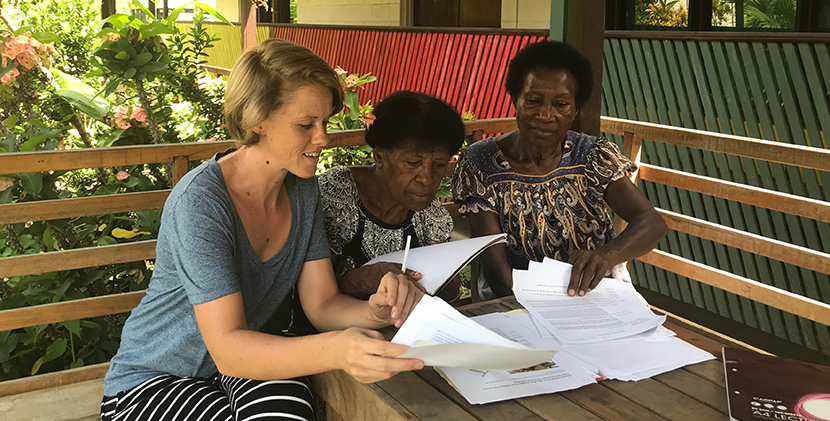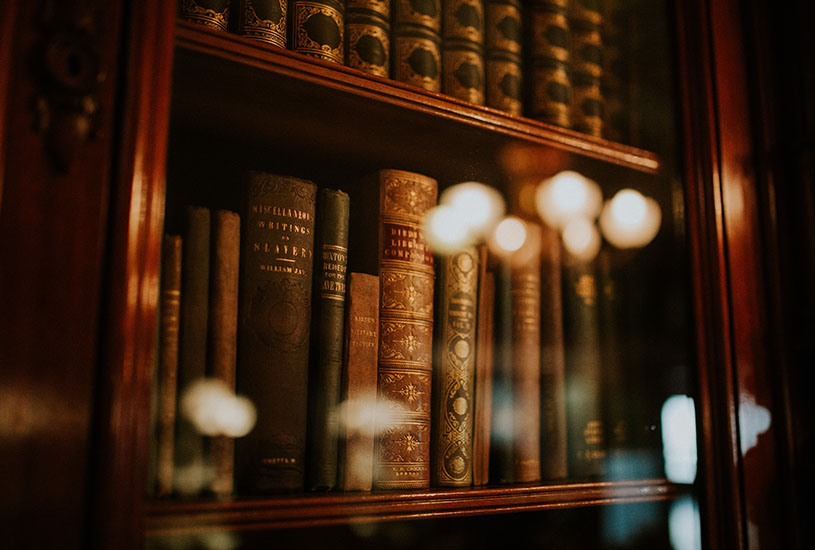Historians are using the latest technology to share with the people of Papua New Guinea their own stories of World War Two.
Deakin University researchers have played a key role in collating oral histories of Papua New Guineans relating to World War Two, in collaboration with Papua New Guinean researchers. The stories will be featured in an oral history gallery and online exhibition at PNG’s National Museum and Art Gallery, which is set to open in the middle of 2018.
Interviews have been recorded with over 220 Papua New Guineans, who either lived during the War, or are descendants of those who have now passed away.
Deakin University Historian Dr Jonathan Ritchie and his team have used the latest technology to help give Papua New Guineans access to their own stories of the War. The recordings of the interviews have been uploaded to a dedicated website, which will allow people across PNG and the world to listen to them and read the transcripts.
Dr Ritchie and staff from Deakin University’s Library have also been working on a way that Papua New Guineans living in villages with no Internet access can listen to the recordings. They are making use of new and low-cost technology, in the form of a device called Library Box that will enable the recordings to be heard on a smart phone, tablet or laptop without requiring the Internet.

Dr Victoria Stead from the Alfred Deakin Institute is working with two Oro women researchers, Ms Mavis Manuda Tongia and Ms Margaret Embahe (right), to record oral history interviews about women’s wartime experiences in the province.
“Many parts of PNG do not have easy access to the Internet, so we are bringing the site to remote areas via Library Box, a wireless network file share device, which lets Papua New Guineans view and download the interviews,” explained Ms Michelle Watson, Open Access Librarian at Deakin Library.
“Many of the oral histories are quite enthralling. All the recordings will be available when the site is launched at the middle of the year.”
The project began as a pilot study, with the team of Papua New Guinean researchers led by Dr Ritchie initially conducting 72 interviews with people living in the broad corridor of the Kokoda Trail about their, or their forebears’, experiences during World War Two.
That project resulted in a book “Voices from the war – Papua New Guinean stories of the Kokoda Campaign, World War Two” and has since expanded across the country, with Papua New Guineans taking a central role in the research. In 2017, a PNG team, led by Dr Anne Dickson-Waiko from the University of PNG, conducted an additional 60 interviews in the Milne Bay area, site of the famous 1942 battle.
Along with three other parallel projects undertaken during 2017, the work will result in a radio program, books, a short film, and educational material, as well as the online exhibition that will accompany the exhibition at PNG’s National Museum and Art Gallery. As well as being a “virtual” exhibition, there will be an oral history gallery at the Museum where visitors will be able to listen to the interviews.
[testimonial_text]The research teams have focussed on the different ways that the War was encountered by Papua New Guineans.[/testimonial_text]
[testimonial_picture name=”Dr Jonathan Ritchie” details=”Deakin University Historian”]
 [/testimonial_picture]
[/testimonial_picture]“For instance, Alfred Deakin Institute (ADI) researcher Dr Victoria Stead and two PNG researchers have focussed on the wartime memories of PNG women, while Dr Kirstie Close Barry of the School of Humanities and Social Sciences is writing a biography of Aisoli Salin – one of the first Papua New Guineans to serve on PNG’s Legislative Council, who died in 1994. Salin was a leader whose contribution to PNG is almost entirely missing from the existing historiography.”
“Until now the focus has been predominantly on Australian and US involvement in World War Two. The Second World War is a very important part of PNG and Australia’s history. Now, we are disseminating the experiences of Papua New Guineans in the Second World War to the Papua New Guinean people, as well as researchers around the world and the general public,” said Dr Ritchie.
The “PNG in World War Two” oral history project is supported by the Australian Government through the Papua New Guinea-Australia Decentralisation and Citizen Participation Partnership.
- The first group of PNG World War Two oral histories is now available online at: pngvoices.deakin.edu.au
Published by Deakin Research on 26 April 2018



